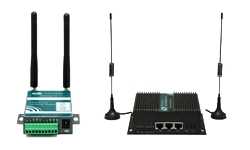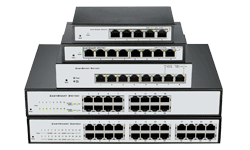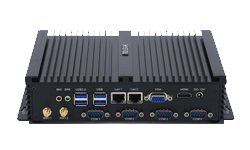5G Industrial Routers: The Key to Secure Industrial IoT
5G Industrial Routers: The Key to Secure Industrial IoT
1. The Growing Demand for Industrial Connectivity
The number of IIoT devices is projected to surpass 36 billion by 2030. These include sensors, PLCs, robots, meters, and more—all generating vast amounts of data. Traditional wired and Wi-Fi networks are often insufficient due to:
- Physical Limitations: Wiring is costly and rigid.
- Coverage Gaps: Wi-Fi struggles in large or metallic environments.
- Latency Issues: Unreliable for time-critical operations.
5G industrial routers solve these problems by offering wide coverage, flexibility, and high-speed connections.
2. Core Features for 5G Industrial Router
A modern 5G industrial router goes beyond mere connectivity. Look for features like:
- Dual SIM Redundancy: Ensures continuous service via failover between networks.
- Advanced Security: IPsec, OpenVPN, and firewall support protect data in transit.
- Device Management: Cloud-based platforms enable centralized monitoring and updates.
- Multiple Antennas: For improved signal reception and MIMO functionality.
These routers act as the communication hub in an IIoT ecosystem.
3. Security: A Top Priority
Security is a major concern in industrial environments. 5G routers are designed with layered protections:
- Network Segmentation: Isolates devices to limit potential attack surfaces.
- Secure Boot and Firmware Updates: Prevents tampering.
- Encrypted Communication: Protects sensitive industrial data.
- User Authentication: Role-based access controls prevent unauthorized configuration.
4. Use Cases Across Industries
Here’s how different sectors are leveraging 5G industrial routers:
- Oil & Gas: Monitor remote drilling sites with low-latency video and sensor data.
- Utilities: Manage smart grids and substations with secure, always-on links.
- Transportation: Connect fleet management systems and public infrastructure.
- Agriculture: Enable precision farming with autonomous machinery and environmental sensors.
5. Cloud and Edge Integration
Modern industrial routers are increasingly integrated with edge computing and cloud platforms. Benefits include:
- Real-Time Processing: Routers can run lightweight AI models to detect anomalies.
- Data Filtering: Only important data is sent to the cloud, reducing bandwidth and cost.
- Scalability: Easily connect hundreds or thousands of devices across multiple locations.
6. Choosing the Right Router
When selecting a 5G industrial router, consider the following:
- Network Compatibility: Support for local 5G bands and fallback to 4G/3G.
- Environmental Specs: Operating temperature, ingress protection, and EMC compliance.
- Vendor Support: Availability of firmware updates, APIs, and technical assistance.
- Certifications: CE, FCC, RoHS, and relevant industry standards.
E-Lins, A source IoT routers manufacturer since 2005, published H685f and H900f 5G industrial routers in the market, which will be a good choice for your IoT Solutions.


 Networking
Networking EMBEDDED SYSTEMS
EMBEDDED SYSTEMS Switches
Switches Wireless Solutions
Wireless Solutions Industrial Computer
Industrial Computer Cloud Services
Cloud Services



